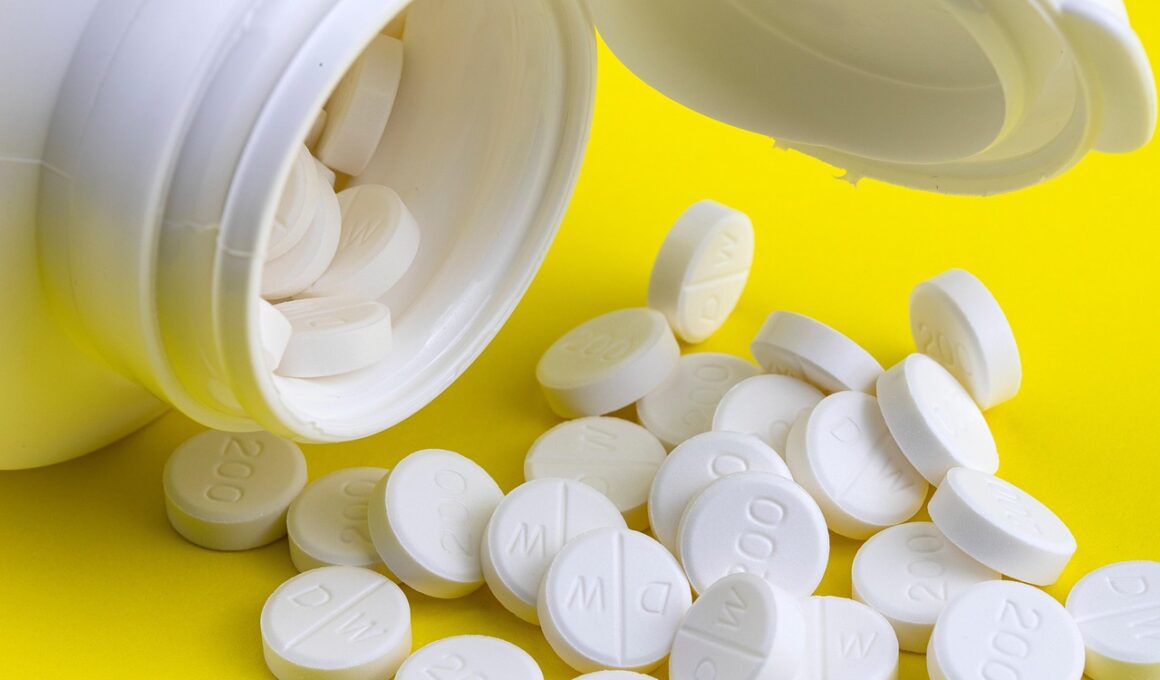Electrolyte Supplements for Youth Athletes: What Parents Should Know
Electrolyte supplements play an essential role in the performance and health of youth athletes. As youngsters engage in various sports, their bodies lose valuable electrolytes such as sodium, potassium, and magnesium through sweat. Replenishing these electrolytes is crucial for maintaining hydration and preventing fatigue or muscle cramps. Parents must understand the importance of these supplements, especially during high-intensity training sessions or competitive events. While hydration with plain water is important, electrolyte supplements can provide the necessary minerals that plain water lacks, particularly in hotter climates or during prolonged activities. Furthermore, these supplements help regulate nerve function and muscle contractions, ensuring that young athletes can perform at optimal levels throughout their sessions. Parents should consult with a pediatrician or a sports nutritionist to evaluate the specific needs of their athlete. Quality products must be chosen, preferring those with natural ingredients and minimal added sugars. Assessing personal dietary habits can assist in determining if supplementing is necessary. Balancing food and supplementation can help achieve the best performance outcomes. Ultimately, understanding what electrolyte supplements can do is crucial for ensuring athletes remain healthy and fit.
Before delving into electrolyte supplements, it is vital to understand the basic functions these nutrients serve in young athletes’ bodies. Electrolytes maintain fluid balance, transmit nerve impulses, and support muscle function. During intense activities, especially in hot conditions, the body loses these crucial minerals. Inadequate electrolyte levels can result in dehydration, leading to reduced athletic performance, cognitive impairments, and physical distress. Parents may consider using electrolyte supplements to safeguard against these issues. Proper dosages tailored for young athletes help ensure they receive adequate doses of sodium, potassium, and other necessary components. Furthermore, many products designed for youth athletes are formulated specifically to cater to their developmental needs, ensuring safety and efficacy. When selecting a product, parents must carefully read ingredient labels to avoid unnecessary additives and sugars. Additionally, monitoring hydration levels can serve as an indicator of whether further electrolyte supplementation is required. Encouraging kids to listen to their bodies and understand their hydration needs is crucial as well. Ultimately, utilizing these supplements wisely can facilitate better performance and health in youth athletes.
Choosing the Right Electrolyte Supplement
With countless electrolyte supplements available on the market, making the right choice can be overwhelming for parents. Since children’s needs differ from those of adults, certain products are crafted specifically with younger athletes in mind. Parents should focus on supplements that provide a balanced ratio of electrolytes without excessive sugars, artificial flavors, or colors. Products in powder, tablet, or ready-to-drink forms cater to different preferences and convenience. When selecting a supplement, look for one that lists essential electrolytes like sodium, potassium, magnesium, and calcium. Additionally, avoid those packed with unnecessary calories, additives, or preservatives. Another crucial aspect to consider is taste; sometimes, children may find certain flavors more appealing, which may encourage consumption. Parents can conduct taste tests with their kids to determine the most acceptable option before committing to purchase. Product reviews, athlete endorsements, and recommendations from dietitians can be invaluable resources in finding dependable choices. Lastly, obtaining the necessary hydration assistance from health professionals can further guide families toward safe and effective electrolyte supplementation, ensuring that young athletes thrive.
When to Use Electrolyte Supplements
Timing the use of electrolyte supplements is crucial for maximizing benefits while minimizing risks. Generally, youth athletes should consume electrolyte supplements during periods of vigorous physical activity lasting longer than an hour. Additionally, extended sports practices and competitions requiring high endurance may warrant their use. Parents should encourage their young athletes to hydrate not just during sporting events but also before and after, allowing time for the body to absorb fluids and minerals. Research indicates that athletes who consume electrolyte-rich beverages before and after exertion can recover better and experience less muscle fatigue. Additionally, if athletes find themselves competing or training in hot weather conditions, electrolytes are especially important to offset intense loss due to perspiration. Conversely, for typical training sessions or games lasting under an hour, plain water is often sufficient for hydration needs. Ultimately, success involves a proactive approach by monitoring signs of dehydration, such as fatigue or cramping, and taking action by adjusting fluid and electrolyte intake accordingly. Responsive hydration strategies ensure athletes remain energetic and ready to compete consistently, enhancing overall performance.
Nutrition is a cornerstone of athletic success, and electrolyte supplementation should complement a well-balanced diet. Parents must ensure that their young athletes consume adequate whole foods, focusing on fruits, vegetables, lean proteins, and whole grains. Foods like bananas, oranges, spinach, and dairy products are natural sources of essential electrolytes. Hydration should always begin with these food sources, as they contain water along with necessary nutrients. While supplements are helpful during intense activity, they should not replace proper nutrition. Education around the importance of hydration, balanced meals, and regular eating schedules is crucial. With the right dietary habits, athletes will naturally obtain many of the electrolytes they need. Involving young athletes in meal planning can foster healthy relationships with food and encourage better choices. Furthermore, parents should educate their children on listening to their bodies, recognizing when they feel thirsty. Paying attention to these signals can help ensure that athletes stay properly hydrated throughout activities. Establishing this foundational knowledge helps promote long-term health and encourages a nutritious lifestyle, supporting performance goals as athletes grow.
Potential Risks of Electrolyte Supplements
While electrolyte supplementation can be beneficial, there are potential risks that parents must recognize. Overconsumption of electrolytes can lead to imbalances, resulting in hypernatremia (excess sodium), hyperkalemia (excess potassium), or gastrointestinal issues. Young athletes, in particular, may not be able to self-regulate electrolyte intake effectively, increasing the need for parental guidance. Symptoms like nausea, diarrhea, or cramping can occur if supplements are not used appropriately. Therefore, parents should closely monitor supplementation to ensure adherence to recommended dosages established by health professionals. Children with specific health conditions, such as kidney problems, may require stricter monitoring regarding electrolyte consumption. Additionally, mixing electrolyte supplements with caffeine or energy drinks can amplify negative side effects. As such, parents should be vigilant about the total intake of all products consumed by their youth athletes. Education is key to minimizing these risks; making informed decisions and understanding the potential for adverse effects can help prevent complications. With a balanced approach and open communication about nutritional needs, families can support young athletes while reducing the likelihood of any negative experiences.
In conclusion, electrolyte supplements can provide vital support for youth athletes, assisting in hydration, performance, and recovery. Parents play a crucial role in navigating their children’s electrolyte needs by choosing the right products, timing supplementation accurately, and fostering a healthy dietary base. Communication around proper nutrition, listening to the body’s signals, and responsible supplementation ensures that young athletes maintain peak performance while prioritizing their health. Parents should take the time to educate themselves about optimal practices, including consulting with professionals who can offer tailored advice for individual athletic situations. It’s essential to remember that every athlete’s needs may vary, necessitating a personalized approach to supplementation. The journey towards optimal performance should always consider the balance of nutrition and hydration, aiming for a holistic view of health and wellness. As youth athletes grow and experience various sports, monitoring their hydration and nutrient needs will foster resilience and success throughout their journey. By supporting young athletes with the right tools and knowledge, parents will empower them to excel in their sports while understanding the importance of health and well-being.


